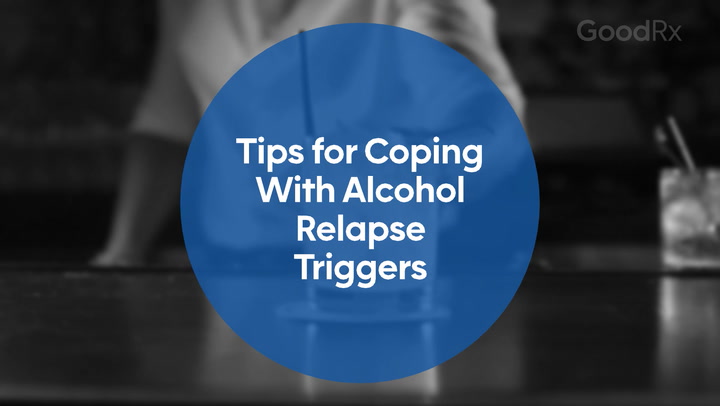
How Drug and Alcohol Addiction Impacts Your Mind, Body, and Health
Key takeaways:
Drugs and alcohol can affect your mental and physical health.
There are both short- and long-term physical effects of drug and alcohol use.
Alcohol and drug use are linked to many different health problems, including cancer, heart disease, and infections like COVID-19.

Over 20 million people in the U.S. have a substance use disorder (SUD) — a mental health condition where you continue using drugs and alcohol despite the problems they cause. Substance use disorder is also sometimes called “addiction,” especially when it’s severe.
There are many substances that can lead to addiction. Examples include:
Alcohol
Cocaine
Heroin
LSD
Marijuana
Methamphetamine
PCP
Prescription medications
Tobacco
You may be familiar with many of the symptoms of substance use disorder, like cravings, withdrawal, or problems at work or in your personal life.
But did you know that addiction can also affect your physical health? Drugs and alcohol can cause immediate physical symptoms, sometimes with just one use. Substance use can also lead to chronic health problems, disability, and even death.
Read on to learn more about how substances affect your body and brain, as well as which health conditions are associated with drug and alcohol use.
What are the physical effects of drugs and alcohol?
When you use alcohol or drugs, they can have immediate physical effects. These effects depend on which substance you take, how much you use, and your overall health. For some drugs, these effects can happen with just one use.
Examples of short-term physical effects include:
Heart rate changes
Breathing changes
Changes in alertness
Coordination problems
Trouble speaking clearly
Appetite changes
Nausea and vomiting
Fainting
Using drugs or alcohol for longer periods of time can also cause symptoms.
Examples of long-term physical effects include:
Abdominal pain
Breathing problems
Chest pain
Severe constipation
Severe muscle cramping
Weight gain or loss
Seizures
How do drugs and alcohol affect your brain and mental health?
Drugs and alcohol can have short-term effects on your mental state. These can include changes in your:
Mood
Anxiety
Concentration
Ability to think clearly
Ability to relax
Perception of reality
Drug and alcohol use can also cause permanent brain problems, like memory difficulties, poor decision making, and even dementia.
Drug use also alters levels of certain chemicals (neurotransmitters) in the brain. This can lead to mental health challenges such as depression and anxiety. In fact, people addicted to drugs are twice as likely to have a mood or anxiety disorder.
Are there certain health problems linked to drug and alcohol use?
Yes. Drug and alcohol use is associated with many different health problems, like stroke, heart attack, and even some cancers.
Examples include:
Heart problems: Alcohol and most drugs are linked to heart and blood vessel problems. This can lead to irregular heartbeat, heart attack, stroke, and death.
Dental problems: Many different substances cause dental problems, like dry mouth and tooth decay.
Lung problems: Smoking or inhaling drugs can damage your lungs and increase your risk for lung problems like bronchitis or lung cancer.
Infections: Injecting drugs increases your risk of infections like HIV, hepatitis, or heart and skin infections. Drug use can also weaken your immune system, making you more vulnerable to infections — including COVID-19.
Kidney damage: Some drugs can damage your kidneys directly or make them have to work harder than normal.
Liver damage: Alcohol and drugs can damage your liver, especially when combined.
Mental health problems: Many drugs can worsen or cause new mental health problems like depression, anxiety, or schizophrenia.
Cancer: Cigarettes, marijuana, and alcohol have all been linked to different types of cancer.
Who is at risk for health problems from drugs and alcohol?
Anyone who uses drugs and alcohol can have health problems.
You may be more likely to have health problems if you:
Use high doses of drugs over a long period of time
Use drugs made from home labs that may have unsafe contaminants or unknown doses
Have other mental health conditions that could worsen drug effects
Mix drugs or alcohol
Engage in high-risk behavior
Have underlying health conditions like heart or lung disease
How do I know if I’m addicted to drugs or alcohol?
Drug or alcohol use can range from occasional use through misuse to severe addiction. Addiction is when someone continues to use a substance despite it causing negative consequences. Addiction changes the brain, and people addicted to drugs or alcohol often have uncontrollable cravings for the substance.
You can learn more about the difference between substance use and addiction in our GoodRx guide to substance use disorder.
How to keep drug or alcohol use from becoming an addiction
Occasional use of drugs or alcohol does not mean you will become addicted, but if you think you might be at risk of addiction, it’s a good idea to take some steps to prevent misuse or addiction. This could mean:
Limiting your use or setting limits for yourself
Finding outside hobbies or activities that do not involve substance use
Connecting with others with similar goals, such as through Alcoholics Anonymous or Narcotics Anonymous
Using smartphone or tablet apps to manage your triggers and cravings
Talking with your healthcare provider about counseling or medications
Getting help for a substance use disorder
Treatment for addiction most often includes therapy, medication, and long-term follow up. It may be treated outpatient, in the hospital, or a combination. It is important to realize drug addiction is a chronic disease and that ongoing support is crucial.
Need more information? Read about treatment options in our GoodRx guide to recovery.
The bottom line
Drug and alcohol use can affect your physical and mental health in many different ways and depends on many factors. Drug use can change your brain and quickly lead to other health problems. However, there are ways to prevent occasional drug or alcohol use from becoming an addiction. If you struggle with addiction, there are ways to get help.
Why trust our experts?


References
Alcoholics Anonymous. (n.d.). Alcoholics anonymous.
American Psychiatric Association. (2020). What is a substance use disorder?
Better Health Channel. (n.d.). How drugs affect your body.
Better Health Channel. (n.d.). Teeth and drug use.
Dassanayake, T. L., et al. (2012). Cognitive impairment in patients clinically recovered from central nervous system depressant drug overdose. Journal of Clinical Psychopharmacology.
Hiller-Sturmhoefel, S. (2021). People with SUDs have increased risk for COVID-19 and worse outcomes. National Institute on Drug Abuse.
Hulse, G. K., et al. (2005). Dementia associated with alcohol and other drug use. International Psychogeriatrics.
Narcotics Anonymous. (n.d.). Narcotics anonymous.
National Institute on Drug Abuse. (2005). Addiction is a chronic disease.
National Institute on Drug Abuse. (2018). The science of drug use and addiction: The basics.
National Institute on Drug Abuse. (2019). Treatment approaches for drug addiction drugfacts.
National Institute on Drug Abuse. (2020). Commonly used drugs charts.
National Institute on Drug Abuse. (2022). Addiction and health. Drugs, Brain, and Behavior: The Science of Addiction.
National Institute on Drug Abuse. (2022). Drugs and the brain. Drugs, Brain, and Behavior: The Science of Addiction.
News in Health. (2015). Biology of addiction: Drugs and alcohol can hijack your brain. National Institutes of Health.
Substance Abuse and Mental Health Services Administration. (2020). Key substance use and mental health indicators in the United States: Results from the 2019 national survey on drug use and health.
If you or someone you know struggles with substance use, help is available. Call SAMHSA’s National Helpline at 1-800-662-4357 to learn about resources in your area.

























